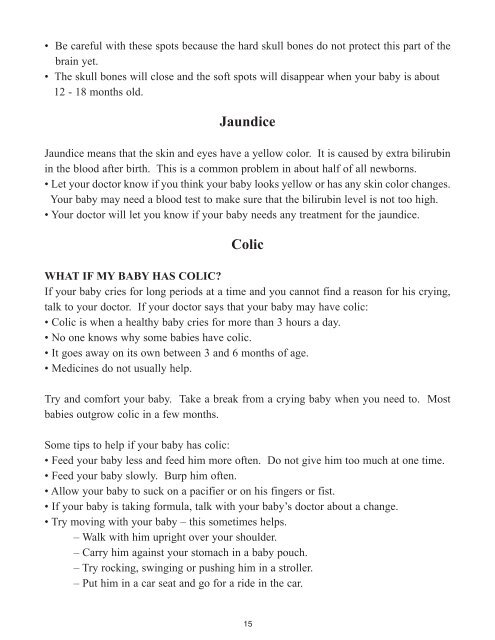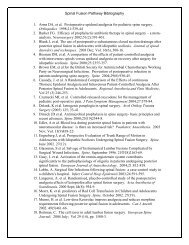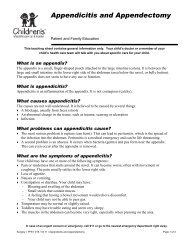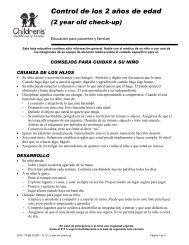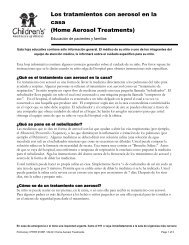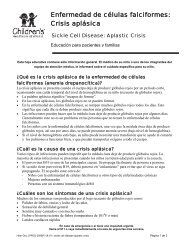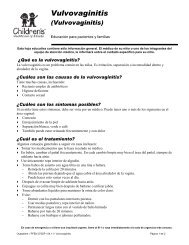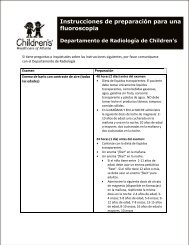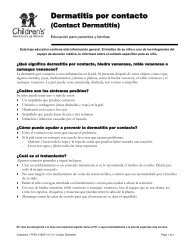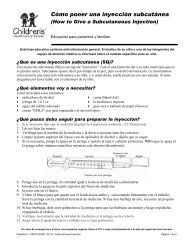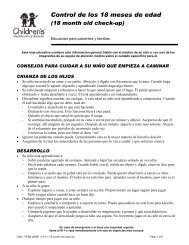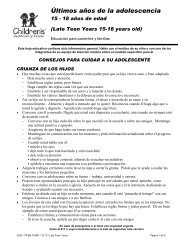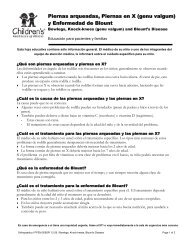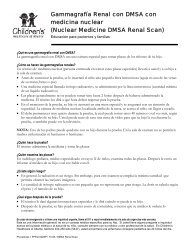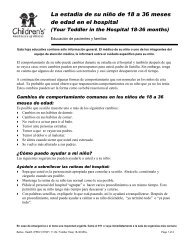Caring for Your Newborn - Children's Healthcare of Atlanta
Caring for Your Newborn - Children's Healthcare of Atlanta
Caring for Your Newborn - Children's Healthcare of Atlanta
Create successful ePaper yourself
Turn your PDF publications into a flip-book with our unique Google optimized e-Paper software.
• Be careful with these spots because the hard skull bones do not protect this part <strong>of</strong> the<br />
brain yet.<br />
• The skull bones will close and the s<strong>of</strong>t spots will disappear when your baby is about<br />
12 - 18 months old.<br />
Jaundice<br />
Jaundice means that the skin and eyes have a yellow color. It is caused by extra bilirubin<br />
in the blood after birth. This is a common problem in about half <strong>of</strong> all newborns.<br />
• Let your doctor know if you think your baby looks yellow or has any skin color changes.<br />
<strong>Your</strong> baby may need a blood test to make sure that the bilirubin level is not too high.<br />
• <strong>Your</strong> doctor will let you know if your baby needs any treatment <strong>for</strong> the jaundice.<br />
Colic<br />
WHAT IF MY BABY HAS COLIC?<br />
If your baby cries <strong>for</strong> long periods at a time and you cannot find a reason <strong>for</strong> his crying,<br />
talk to your doctor. If your doctor says that your baby may have colic:<br />
• Colic is when a healthy baby cries <strong>for</strong> more than 3 hours a day.<br />
• No one knows why some babies have colic.<br />
• It goes away on its own between 3 and 6 months <strong>of</strong> age.<br />
• Medicines do not usually help.<br />
Try and com<strong>for</strong>t your baby. Take a break from a crying baby when you need to. Most<br />
babies outgrow colic in a few months.<br />
Some tips to help if your baby has colic:<br />
• Feed your baby less and feed him more <strong>of</strong>ten. Do not give him too much at one time.<br />
• Feed your baby slowly. Burp him <strong>of</strong>ten.<br />
• Allow your baby to suck on a pacifier or on his fingers or fist.<br />
• If your baby is taking <strong>for</strong>mula, talk with your baby’s doctor about a change.<br />
• Try moving with your baby – this sometimes helps.<br />
– Walk with him upright over your shoulder.<br />
– Carry him against your stomach in a baby pouch.<br />
– Try rocking, swinging or pushing him in a stroller.<br />
– Put him in a car seat and go <strong>for</strong> a ride in the car.<br />
15


